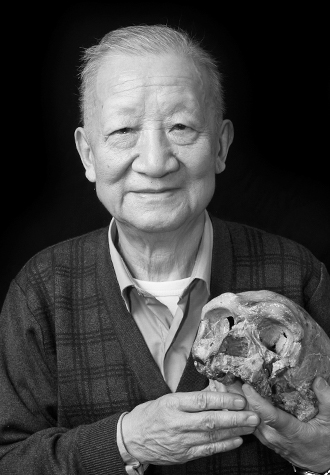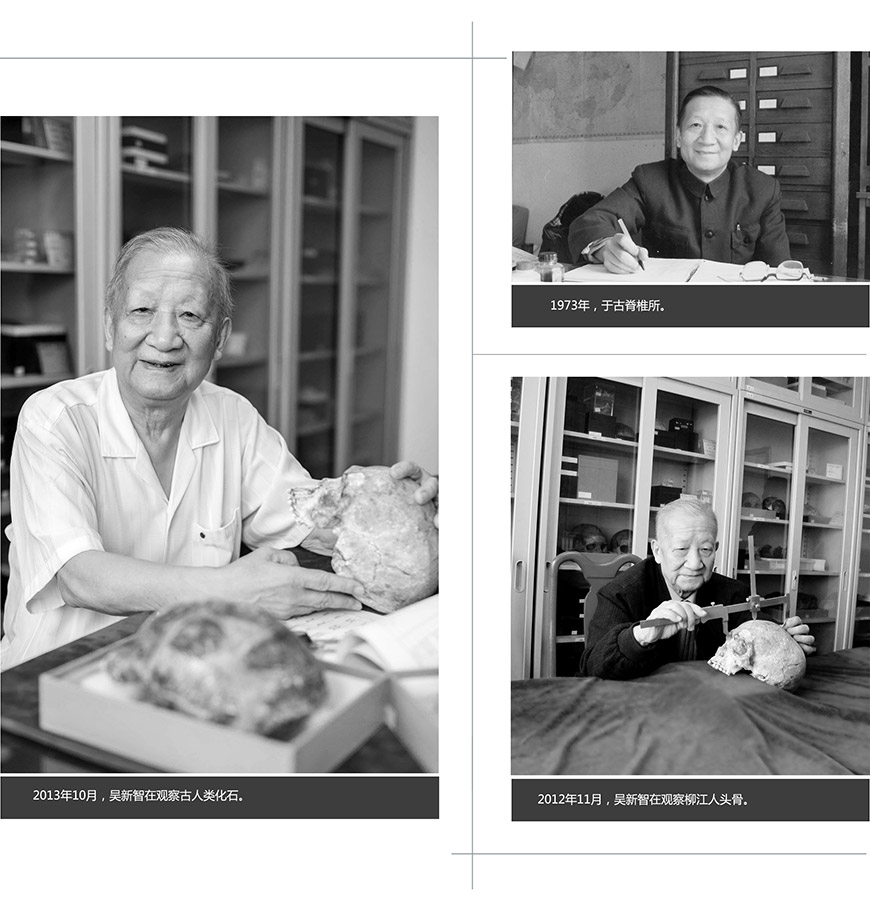
“勤奋求实,团结创新,随遇而进,集腋成裘”
“One should be diligent and pragmatic, encourage others to innovate, make the best of things, and accumulate knowledge.”
安徽合肥人,中共党员。古人类学家。1961年结束中国科学院副博士研究生学业后留在古脊椎所工作。致力于古人类学研究,主持和参与发掘郧西直立人牙和丁村智人顶骨化石的工作;找到淅川人类化石;参与提出现代人起源多地区进化假说;提出中国古人类网状连续进化附带杂交假说;提出大荔化石人对中国现代人的形成比中国直立人贡献更大;为我国灵长类解剖学和法医人类学做出过开创性工作。1999年当选中科院院士。曾当选中国解剖学会副理事长、名誉理事长,任中国大百科全书(第二版)人类学主编等。曾任古脊椎所副所长。
Dr. Wu Xinzhi was born in Hefei, Anhui Province, and he is a CPC member and a paleoanthropologist. He joined the IVPP after finishing his post-graduate study in paleoanthropology in the Chinese Academy of Sciences in 1961, and has long devoted himself to the study of paleoanthropology. Wu presided over and participated in numerous excavations and discoveries including the Homo erectus material from Yunxi in Hubei Province, a fossil parietal bone of Homo sapiens from Dingcun in Shanxi Province, and Homo sapiens fossils from Xichuan in Henan Province. Wu was one of those researchers who proposed the Multiregional Evolution hypothesis to explain the origin of modern humans, and he proposed a new hypothesis, Continuity with Hybridization, for characterizing human evolution in China. He hypothesized that fossil hominins from Dali contributed more to the formation of modern Chinese populations than Homo erectus did. He is honored as a pioneer in forensic anthropology and primatology in China. Wu was elected as an academician of the Chinese Academy of Sciences in 1999. He served as vice president and honorary president of the Chinese Society for Anatomical Sciences, and the editor-in-chief of anthropology for the Encyclopedia of China (second edition). Wu severed as vice director of the IVPP.

开放时间:星期二至星期日09:00-16:30(请提前一周预约)
参观咨询预约电话:010-88369970(谢老师),010-88369269(刘老师)
地址:北京市房山区周口店猿人遗址内
*团体参观须提前一周预约,凭身份证、介绍信等有效证件进行登记